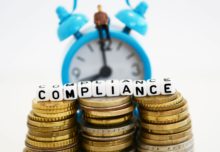Signed into law in 1977, the Fair Debt Collection Practices Act (FDCPA) established legal protection for consumers against abusive debt collection practices. The act provides legal definitions of who qualifies as a debt collector and lays out the avenues debt collection agencies may use when requesting payment for delinquent accounts.
While this act has been amended throughout the past four decades, the methods collection agencies can use to communicate with consumers was restricted to phone calls and mail until late last year. In October 2020, a decision was made that modern technology such as texting and social media messaging are acceptable forms of communication for debt collectors to utilize.
What updates were made to the FDCPA?
On October 30, 2020, the Consumer Financial Protection Bureau (CFPB) changed its regulations, allowing collection agencies to expand their outreach methods to social media, email, and text communications. In addition, the new rule sets limits on how many times collection agencies are allowed to contact consumers.
When do these changes go into effect?
The changes to the FDCPA go into effect in November 2021, one year after the CFPB approved the new rule.
How do these changes affect businesses?
For businesses working with collection agencies, this will allow your partners more opportunities to collect on past due accounts. While the lines of communication will expand for collectors, it doesn’t mean that they can harass or deceive your clients. FDCPA contains a comprehensive list of prohibited conduct. Collection agencies are still required to abide by these regulations and respect consumers and the companies they are collecting for.
Encouraging more effective communication
Additionally, providing collectors with the opportunity to communicate with debtors digitally may offer them a more effective as well as preferred communication method. Compared to traditional phone calls, texting, email, and social media messaging is especially popular with younger consumers. There is no doubt that social media has become a more integral part of people’s lives. By communicating with consumers through their preferred medium, it may encourage more prompt payments and smoother interactions.
There are some restrictions with communicating through social media, so if you have additional questions it may be wise to consult with your attorney.
How do these changes affect consumers?
Under the FDCPA, consumers are afforded legal protection from abusive debt collection practices. The changes to this act will allow debt collectors more opportunities to contact you about past due accounts. Still, it also requires collectors to provide consumers with the ability to opt-out of electronic communications and set limitations on how collectors can contact you.
Know Your Rights
The Fair Debt Collection Practices Act’s main objective is to outline best practices for debt collection and consumer rights regarding debt collection communication. Its intent is to eliminate abusive debt collection practices and enable consumers to control how and when debt collectors can contact them.
Regardless of how a collection agency is contacting you, you have rights, and there are steps you can take to ensure you are receiving the treatment you deserve.
This includes:
Request Verification of the Debt
Under the FDCPA, consumers have the right to request that a collection agency provide them with an accounting of the debt owed, total debt amount, and name of the original creditor. After requesting verification, in order for the collection agency to continue collections, the agency is required to send you a debt validation letter with the information regarding your debt.
Do Not Immediately Give Away Your Personal Information
Until you have verified the debt and established that you are working with a legitimate debt collector, do not provide your personal information over the phone, via email, or in a text. As the avenues of communication for collectors expand, so does the rate of scams and fraud. This makes verification all the more important.
You Can Control How You Are Contacted
The FDCPA states that collectors can contact consumers between 8:00 am to 9:00 pm, local time. Any time outside these hours (or times you deem as inconvenient) is considered deceptive. The new rules for the FDCPA take this one step further by allowing you to set limits on how collectors contact you. Collection agencies are required to provide you with a simple method to opt out of email, text, or social media communications.
To Learn More About Changes To The FDCPA, Click Here
We Take A Different Approach to Collecting
Here at Kinum, Inc., we focus on maintaining connections between our clients and their customers. Our goal is to help you collect on past due accounts while preserving your relationship with your customers or patients. Our Connect and Collect approach is designed to create faster debt recovery while keeping costs at a minimum. It emphasizes connecting with your customers to encourage prompt repayment.
For more information about our services, we encourage you to contact us today at 1-888-281-1750.






